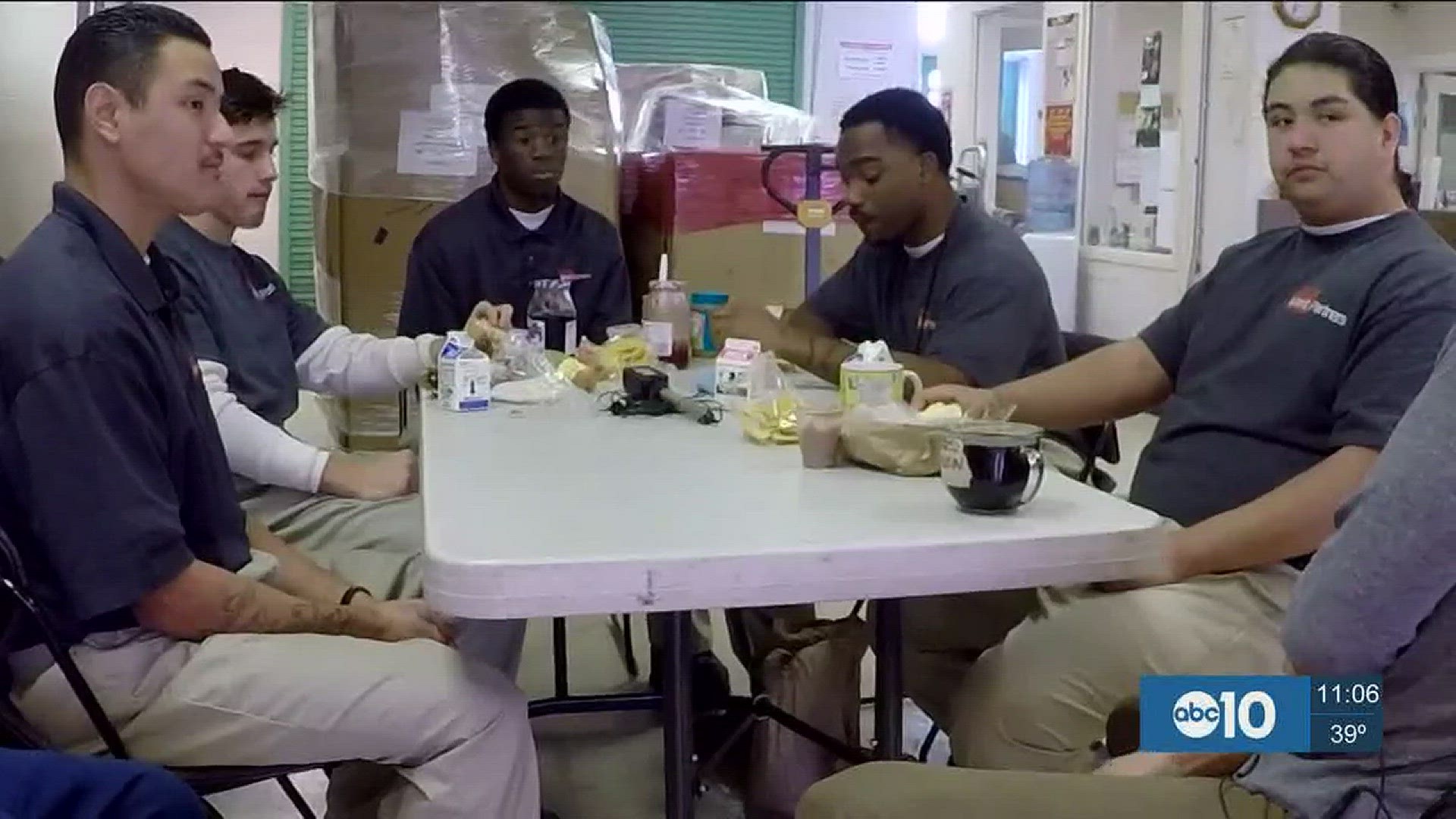A few weeks ago, ABC10 caught word that a bunch of computers were being donated to an East Sacramento middle school. Cool, right? Students, in need of computers, get computers.
But it turns out those machines were fixed up by kids not much older than the ones receiving them. The only difference? The kids refurbishing those computers are doing so from behind bars.
ABC10 started looking into the program, which is run by the California Prison Industry Authority, and found that they've accomplished something many communities and lawmakers are grappling with: how to improve recidivism rates and slow down repeat offenders.
To better understand how they're achieving this, and see firsthand how the program is turning these young men’s lives around, ABC10 spent some time with several inmates at the N.A. Chaderjian Youth Correction Facility in Stockton.
"I thought it was over for me," said Mark, 20, who was initially locked up on a murder charge. "This program, it helped me humble myself, and it gave me the opportunity to go home to some money."
Unlike other jobs at the prison, which pay next to nothing, the guys in this program are paid a minimum wage. Their checks are broken up into five equal categories, including restitution, commissary funds, savings, and a crowd favorite: room and board.
For Mark, whose charge has since been dropped down to involuntary manslaughter, his plan is to give all the money he's earned working in the program to his mother and grandmother.
"I'm going to keep some for myself, but the rest of it, they can have it, just to give back," Mark said.
The program, now in its 14th year, has employed 100 juvenile offender and has been able to remain operational without any state funding or financial donations. Offered as one of California PIA's free venture programs, inmates go through an interview process similar to those held for jobs on the outside, but since many of these guys were locked up when they were just kids, offenders are judged on maturity rather than experience.
According to a report from the Office of Juvenile Justice and Delinquency Prevention, “There is no national recidivism rate for juveniles.”
However, N.A. Chaderjian has earned a reputation as one of the country’s most notorious youth prisons, with recidivism rates at one time cracking 70 percent, rivaling the rate of adult offenders in the U.S.
Those numbers have dropped somewhat during the last decade, but remain nearly twice the average of California’s division of juvenile justice.
For inmates working in the computer refurbishing program, though, the story is much different. Of the 100 offenders who’ve been accepted into the program, only 10 percent were arrested again after their release.
So why are the inmates who go through the program less likely to do another bid?
Officials point to the high-level of training and treatment of inmates as employees rather than criminals.
Ruben Gulindo, 19, was sentenced to three years in DJJ for second degree robbery. He’s one of eight inmates currently participating in the program.
"(The program) has helped me in a lot of ways," Gulindo told ABC10. "Being responsible, having integrity."
After he gets out and starts looking for a job, Guilndo hopes his future employer knows that he's turned his life around and isn't the same person he was when he first incarcerated.
"I've changed a lot," Gulindo said. "Even though I do have a past that's forever going to follow me, just not to let that past come in my way, but let that past show who I am."
Administrators at Sutter Middle School, who received 40 computers refurbished by the inmates in the program, said they didn’t have the money to afford the machines on their own, and the donation will allow more of their students and their parents to have access to internet.
"My son actually goes to this school, and one of his teachers said they needed computers because their computers were breaking down," said Robert Osborn, senior analyst at the public utilities commission. "We worked with CalPIA and the department of technology to try and find a way to get computers to Sutter Middle School. And we're looking to expand this program to schools across California."
Whether or not these guys fall back into their old ways once they’re released is up to them, but for people like Mark, he knows being a part of this program has changed the way he looks at life. He says his time here behind these walls has given him perspective.
"It takes time to strengthen your mind and think differently," he said. "And that's what me being here helped me out with."

